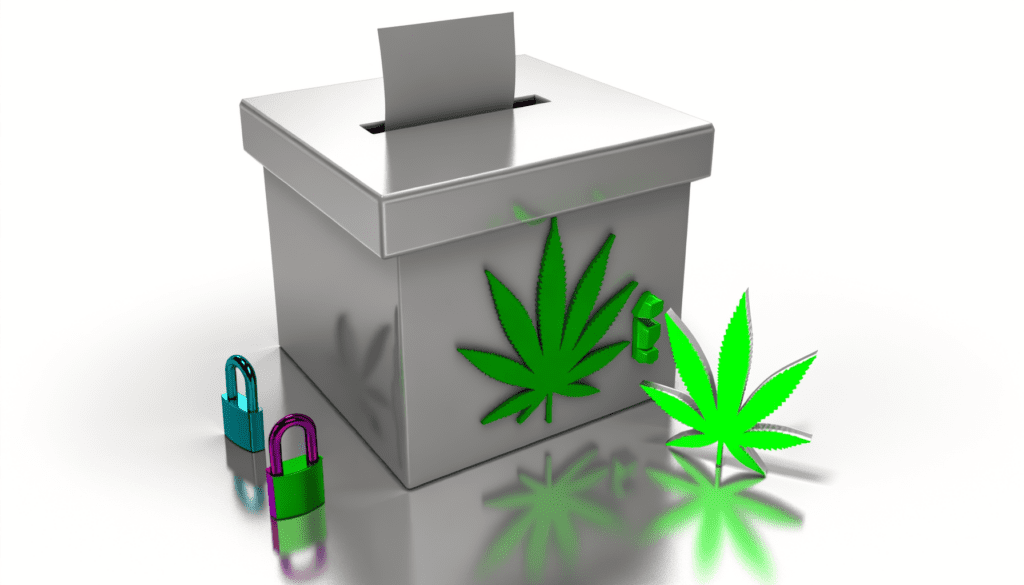Amidst growing national momentum towards cannabis legalization and decriminalization, Idaho remains steadfast in turning back the hands of time. Idaho’s legislature recently passed the highly contentious House Joint Resolution 4 (HJR004), positioning itself to prevent Idaho voters from initiating cannabis legalization via ballot initiatives. This alarming move is set to appear before Idaho voters in November 2026, presenting them with a paradoxical choice: voting to limit their own future electoral voice.
Stricter than Ever: Idaho’s Cannabis Clampdown
Idaho undoubtedly holds the distinction of possessing some of the nation’s most draconian cannabis laws. Bereft of medical cannabis, adult-use legalization, or even decriminalization laws, many Idahoans have long felt that their state significantly lags behind a nationwide shift towards progressive cannabis policy. Yet, rather than moving forward, Idaho’s lawmakers have decided to double down, further tightening their grip on prohibition.
HJR004, spearheaded by Republican Senator Scott Grow, showcases a troubling disconnect between elected officials and public sentiment. Grow justified his measure as a proactive step to, in his own words, “prevent future initiatives from overwhelming the legislature.” However, such prophylactic democracy—where citizens are restricted from participation because lawmakers predictively disagree—is *fundamentally antithetical to democratic values.* The Idaho legislature is effectively conveying a clear mistrust in the people who elected them.
Voices to Silence: Blocking the Democratic Pathways
Ballot initiatives have traditionally empowered citizens to directly shape policy, particularly when state legislatures prove unresponsive to public demand. It’s precisely this democratic avenue that conservatives in the state’s capital aim to obstruct with this resolution. Undermining the ballot initiative process is not merely a policy issue—it’s an attack on the democratic foundations upon which meaningful social change depends.
One vocal opponent rightly declared, “The people have a right under the initiative and the referendum process to weigh in on these issues…We should respect the people.” Yet Idaho lawmakers continue to show disturbing ambivalence towards the electorate’s clear right to self-determination.
A Painful Backward Step
Indeed, while much of America grapples with righting historical wrongs rooted in decades of punitive drug laws and mass incarceration, Idaho’s stance increasingly appears regressive. Governor Brad Little recently signed legislation enforcing mandatory minimum penalties for even low-level marijuana possession offenses—another alarming signal of the state’s unwillingness to acknowledge vast bodies of evidence that criminalizing cannabis is an ineffective tactic that disproportionately harms marginalized communities.
“In sealing off paths for citizen-driven reform, Idaho is locking itself out of a fair, just, and equitable future.”
One can hardly ignore how starkly Idaho’s backward-looking cannabis law contrasts with neighboring states that embrace reform. Washington and Oregon have long enjoyed the economic and social benefits derived from equitable cannabis legalization, significantly reducing unnecessary incarceration and responsibly directing revenues back towards community support projects. Such progressive policies model not only fiscal responsibility but also compassionate justice, understanding the deep societal harm inflicted when cannabis users are criminalized rather than supported.
The Battle Ahead: Dueling Initiatives on the 2026 Ballot?
Ironically, there still lies a chance for voters to actively resist this latest legislative encroachment. Indeed, cannabis advocates continue to push forward: a concurrent initiative titled “Decriminalize Cannabis Now” has gained traction, potentially setting up a hugely contentious ballot battle.
The juxtaposition of these two potential ballot measures—one aiming at expanding democracy through decriminalization, and the other explicitly contracting democratic rights—highlights deeper tensions and possible fractures within the state. It marks Idaho as a contemporary battleground of grassroots progressive activism versus conservative legislative entrenchment.
Idaho’s decision will resonate beyond state lines, serving as a critical referendum defining the broader national direction on drug policy and democratic processes. At stake is not merely the right to responsibly engage with cannabis, but also Idahoans’ fundamental democratic freedoms.
In an era where much of the nation progressively embraces compassionate cannabis reform—recognizing its potential to address systemic inequities and minimize needless incarceration—Idaho’s political leadership remains indicative of a troubling societal divide.
By stripping its citizens of the right to future initiatives, Idaho risks stalling on the wrong side of history, denying its people essential pathways to democratic expression and social progress—an error that Idaho voters would be wise to decisively reject in 2026.

